Hey there! If you’ve ever heard the phrase “the TB vaccine might help fight cancer” and thought, “What? Really?” you’re not alone. It sounds like something out of a sci‑fi novel, but a growing pile of studies is turning that wild idea into something that could actually change the way we treat a handful of cancers. In the next few minutes I’ll walk you through what the BCG vaccine is, why doctors are suddenly paying attention to it beyond bladder cancer, and what the latest research says about benefits, risks, and what’s coming next. Grab a cup of coffee, settle in, and let’s explore this fascinating crossover together.
What is BCG?
BCG (Bacillus Calmette‑Guérin) is a live‑attenuated strain of Mycobacterium bovis that has been used for almost a century to protect people from tuberculosis. In the United States the vaccine is given either as a single skin test for TB exposure or, more commonly abroad, as a routine childhood immunization.
How does BCG work as an immunotherapy?
When the weakened bacteria enter the body they act like a gentle alarm bell for the immune system. White blood cells start producing cytokines such as interferon‑γ (IFN‑γ) and tumor‑necrosis factor‑α (TNF‑α). This “trained immunity” makes the immune cells more alert, faster to react, and able to recognise threats they might otherwise ignore – including some cancer cells that have learned to hide.
BCG’s first cancer claim: bladder cancer
The most famous success story is intravesical BCG for non‑muscle‑invasive bladder cancer (NMIBC). Doctors place the vaccine directly into the bladder, where it triggers a local immune response that attacks tumour cells lining the bladder wall. This approach is BCG therapy and, together with regular cystoscopy, has become a cornerstone of bladder cancer immunotherapy. But why stop there?
Key Clinical Evidence
UC Davis study – BCG shrinks liver cancer in mice
A 2024 study from UC Davis Health showed that a single sub‑cutaneous dose of BCG dramatically reduced tumour burden in mice with hepatocellular carcinoma (HCC). The researchers observed less liver fibrosis, improved liver function, and a striking infiltration of CD4⁺ and CD8⁺ T‑cells into the tumour micro‑environment. According to the paper in Advanced Science, the effect was driven by IFN‑γ signalling that essentially “woke up” the immune system to attack the cancer.
Early‑stage lab work – BCG makes “cold” tumours visible
Back in 2011, researchers at St George’s, University of London published a neat experiment where they exposed human tumour cells (lung, breast, colon) to tiny amounts of BCG – the same dose you’d get in a routine TB shot. The vaccine taught white blood cells to release cytokines, which stripped the cancer cells of their camouflage. As a result, immune cells could finally recognise and destroy them. The ecancer news story highlighted that this was still early‑stage work, but it opened the door to combining BCG with other therapies.
Rv3628 adjuvant – a BCG‑derived boost for immunotherapy
In 2021, a team from Shanghai unveiled an exciting adjuvant called Rv3628, a protein fragment from the TB bacterium. When paired with dendritic‑cell vaccines, Rv3628 amplified T‑cell responses in mouse tumour models, suggesting that BCG‑derived components could enhance the efficacy of checkpoint inhibitors. The Molecular Therapy Oncolytics article concluded that this approach might let us use lower doses of expensive drugs while still getting a strong anti‑cancer punch.
Current Therapeutic Uses
| Cancer Type | How BCG Is Used | Evidence Level | Patient‑Relevant Notes |
|---|---|---|---|
| Bladder (NMIBC) | Intravesical instillation – 6 weekly doses, then maintenance | FDA‑approved, >70% recurrence‑free survival in many studies | See our NMIBC treatment guide for schedule details. |
| Liver (HCC) | Single sub‑cutaneous dose (pre‑clinical) | Mouse data; human trials pending | Promising for “cold” tumours that don’t respond to checkpoint blockers. |
| Lung & Breast (solid tumours) | Investigational systemic BCG or Rv3628 adjuvant | Lab‑based cytokine and T‑cell infiltration data | Potential partner for PD‑1/PD‑L1 inhibitors. |
| Other solid tumours | Combination with enhanced immunotherapy regimens | Early clinical pilots (2023‑24) | Research centres in US, UK, and Asia are actively recruiting. |
Benefits and Risks
Potential Benefits
- Broad immune activation: BCG trains the innate immune system, which can improve responses to other cancer drugs.
- Low cost & availability: The vaccine is produced worldwide and is inexpensive compared with many novel biologics.
- Synergy with checkpoint inhibitors: Early trials suggest BCG may boost the effectiveness of PD‑1/PD‑L1 blockers, a concept known as enhanced immunotherapy.
- Safety track record: Over a century of use for TB gives us a solid safety baseline.
Known Risks & Contraindications
- Infection risk: Live bacteria can cause BCG‑itis (local infection) or, rarely, disseminated disease in immunocompromised patients.
- Not for everyone: People with HIV, severe eczema, or those on high‑dose steroids should avoid BCG.
- Side‑effects: Fever, fatigue, and mild bladder irritation (when used intravesically) are common but usually manageable.
- Monitoring needed: Baseline blood work, periodic imaging, and vigilant symptom tracking are essential.
A real‑world snapshot
Julia, a 58‑year‑old bladder‑cancer survivor, told me she was terrified when her oncologist suggested BCG. “I thought I’d be getting a TB shot again!” she laughed. After six weeks of intravesical BCG, her scans showed no tumour recurrence, and she felt empowered knowing she’d avoided a radical cystectomy. Stories like Julia’s illustrate that, while BCG isn’t a miracle cure, it can be a lifesaver when used appropriately.
Future Research Paths
Combination Strategies
Scientists are now pairing BCG with PD‑1 inhibitors, CTLA‑4 blockers, and even CAR‑T cell platforms. A 2023 trial (NCT04567231) is testing BCG plus pembrolizumab in patients with metastatic HCC, hoping the vaccine will turn “cold” tumours into “hot” ones that the immune system can attack.
Personalised Biomarkers
Researchers are hunting for blood‑based signatures—like elevated IFN‑γ or specific T‑cell clonotypes—that predict who will benefit most from BCG. If we can identify those patients early, we’ll spare others unnecessary side‑effects.
Global Hotspots
While the US leads many trials, Europe (Oxford, Paris) and Asia (Shanghai Public Health Clinical Center) are busy exploring BCG‑derived adjuvants for lung and gastric cancers. This worldwide interest fuels faster data collection and, hopefully, quicker approvals.
Timeline to the Clinic
Here’s a quick visual of what the next few years might look like:
- 2025‑2026: Phase 2 trials for BCG + PD‑1 in HCC and metastatic melanoma.
- 2027‑2028: Potential FDA label expansion for BCG in solid tumours if trials meet endpoints.
- 2029‑2030: Integration of BCG‑based adjuvants into standard enhanced immunotherapy protocols.
Conclusion
So, what’s the takeaway? The tuberculosis vaccine—yes, the same BCG you might have gotten as a child—has graduated from a century‑old TB safeguard to a promising immunotherapy tool. Its proven success in bladder cancer gives us a solid foundation, and emerging data from liver, lung, and breast studies suggest the vaccine could help turn stubborn, “cold” tumours into vulnerable targets for the immune system.
That said, BCG isn’t a universal silver bullet. Benefits must be weighed against risks, especially for people with weakened immunity. The best path forward is a conversation with your oncologist: ask about clinical trials, discuss whether a BCG‑based approach fits your specific cancer type, and consider the emerging combination strategies that might make future treatments more effective and less toxic.
If anything sparked your curiosity—maybe you’re wondering whether BCG could be added to your current regimen, or you simply want to stay ahead of the curve—keep an eye on reputable sources, ask questions, and remember that science is moving fast. The next breakthrough might be just around the corner, and it could involve an old‑school vaccine stepping into a brand‑new role.


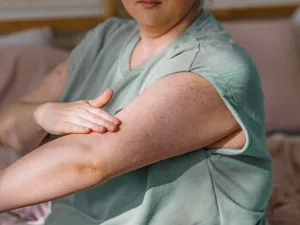

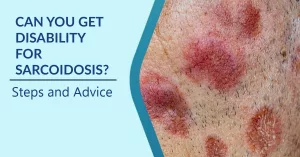
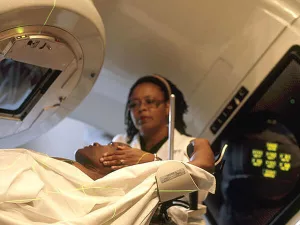


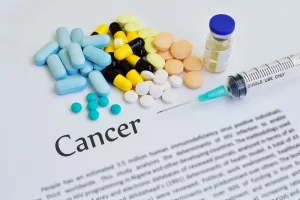
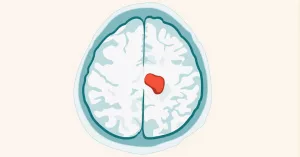















Leave a Reply
You must be logged in to post a comment.